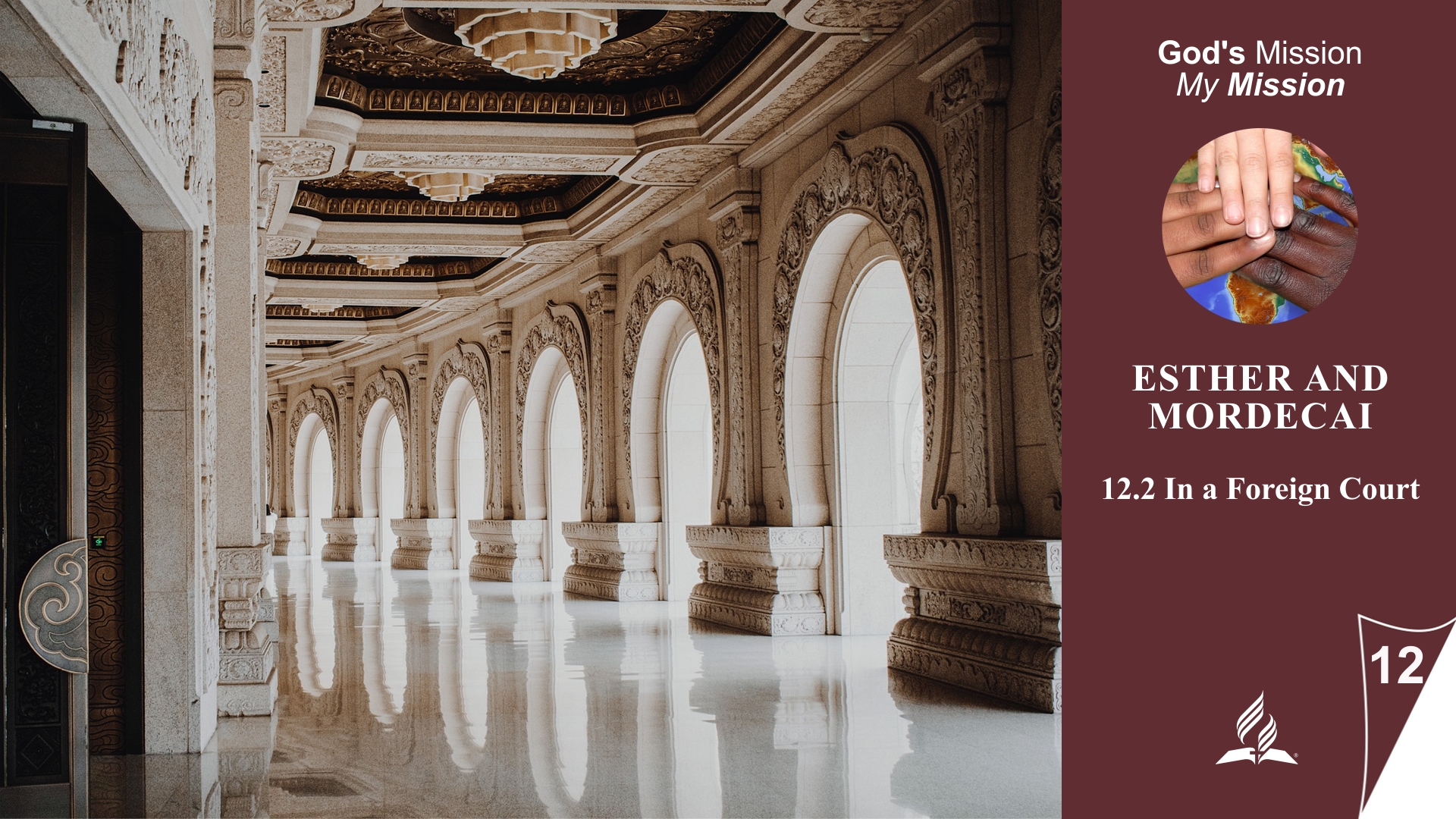

12.2 In a Foreign Court
The story of Esther unfolding against the backdrop of the Persian Empire provides a fascinating glimpse into the lives of Jews who chose to remain in a foreign land, even after the fall of Babylon and the rise of Medo-Persia.
In the shadow of King Ahasuerus’s throne in the splendid palace of Susa, an amazing story unfolds. Here, we witness a royal decision affecting Queen Vashti, paving the way for humble Esther, who will ultimately prove to be a crucial figure in the survival of her people.
Esther and Mordecai take the stage, promising more than a royal court intrigue. It is a story of courage, loyalty, and divine providence in a world often marked by political intrigues and uncertainties.
This narrative reminds us that God’s plans can thrive in the most unusual places and circumstances. The decision to remain in a foreign land may seem unusual at first, but it opens the door to a story that demonstrates the power and wisdom of God amid adversities.
The story of Esther teaches us that even in a foreign king’s court, God’s guidance and protection are present. Even in the most complex political situations, faithfulness to God and the courage to do what is right can play a crucial role.
Read Esther 2:1–9. What do these verses tell us about Mordecai and Esther’s situation?
These verses reveal that Mordecai, a Jew of the tribe of Benjamin, was brought to Susa when Jehoiachin, the king of Judah, was taken to Babylon. Mordecai cares for his niece Esther, who is an orphan. Esther is chosen to participate in the royal contest to find a new queen in place of Vashti.
Mordecai plays a significant role in Esther’s life. He takes her in as his daughter and provides counsel as she participates in the royal contest. The fact that Esther is entrusted to Mordecai’s care highlights that she grows up in a challenging situation without parents, but Mordecai takes her in and cares for her.
The verses also emphasize that Esther finds favor in the eyes of Hegai, the king’s eunuch. Hegai shows Esther special favor, ensuring that she receives the best resources and companions.
Overall, these verses illustrate the adverse circumstances in which Mordecai and Esther live. At the same time, they reveal the divine providence and grace at work in their lives to position them for a role that will be crucial in the upcoming events.
Read Esther 2:10, 20. What transpires here, and why did Mordecai give her such an order?
In verse 10, Esther informs Mordecai that she is loyal to him by revealing her identity. This information may be crucial, as she had no people or kindred, indicating that her family background might not be widely known.
In verse 20, we see that Esther follows Mordecai’s order to keep her identity a secret. This confidentiality could have various reasons, including preserving her safety or the strategic necessity of revealing her true identity at a later time.
It is essential to note that Mordecai may have given the instruction to keep Esther’s identity a secret to protect her from potential dangers. In an environment marked by political intrigues and rivalries, disclosing her Jewish origin could make her vulnerable. Mordecai, caring for Esther, might have decided to safeguard her true identity for the time being.
The story of Esther gradually unveils the wise and strategic decisions made by the main characters to ensure the survival and protection of the Jewish people.
Under what circumstances do you think it might be wise not to openly talk about our faith? Or should we never do that? And if not, why not?
There are various circumstances under which it might be wise to be cautious about disclosing our faith openly. Here are some situations where people might consider being reserved:
-
Professional Environment:
-
In some professional settings, openness about faith might be seen as unprofessional or inappropriate. It could lead to prejudice or affect professional relationships.
-
-
Cultural Sensitivity:
-
In regions or communities where tensions exist between different faiths, being open about one’s faith could lead to conflicts. In such cases, it might be sensible to be respectful and culturally sensitive.
-
-
Personal Safety:
-
In some parts of the world, individuals may face discrimination or persecution based on their faith. In such cases, it may be necessary to keep faith private to ensure personal safety.
-
-
Family Relationships:
-
Sometimes, being open about faith can lead to conflicts in family relationships. In such cases, it is important to find ways to live one’s faith respectfully without provoking confrontations.
-
-
Respect for Other Beliefs:
-
In a multicultural environment, it’s important to respect the diversity of religious beliefs and worldviews. Openness about one’s faith should not lead to devaluing or condemning others.
-
However, it’s also important to emphasize that there is no universal rule, and the decision to openly talk about faith depends on many individual factors. In many contexts, exchanging religious views and promoting understanding and respect is important.
It is crucial to act wisely and respectfully, consider the circumstances, and respond to the needs of the specific situation. Openness should not lead to hurting or discriminating against others but rather should serve to foster understanding and cooperation.
Visited 26 times, 1 visit(s) today






